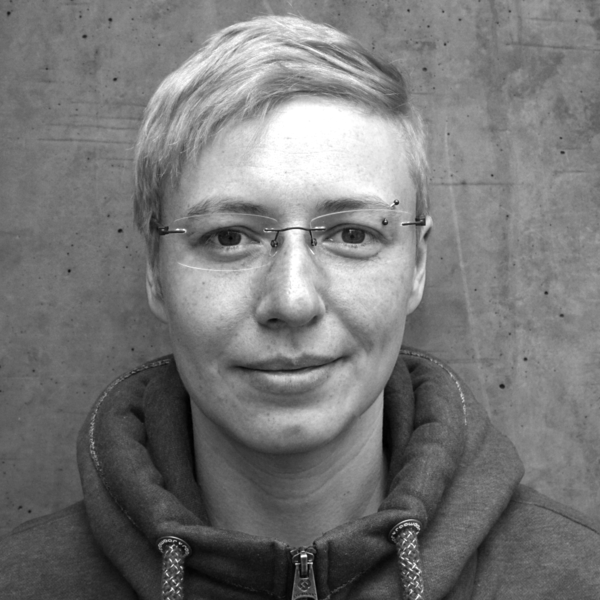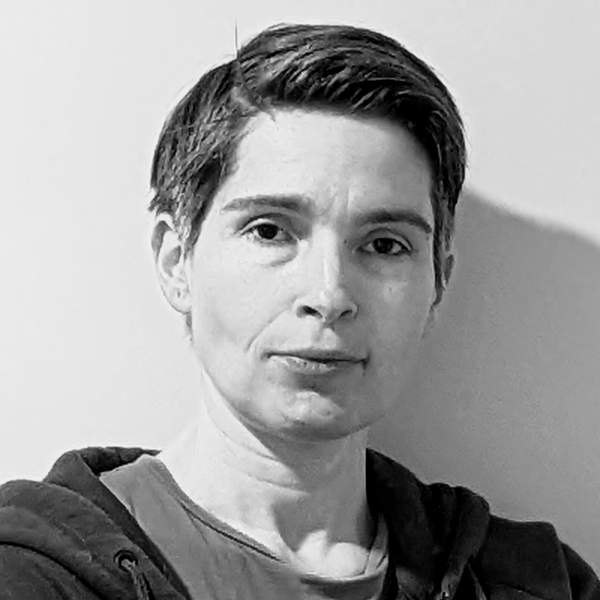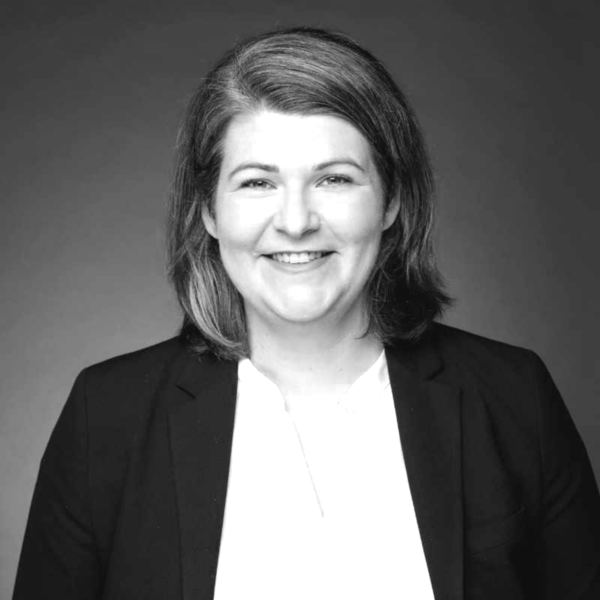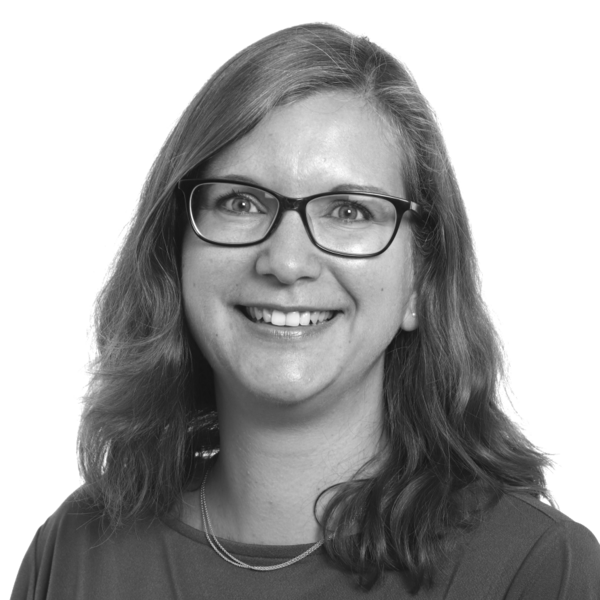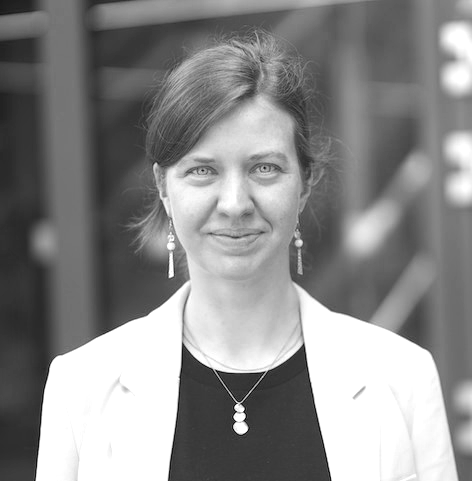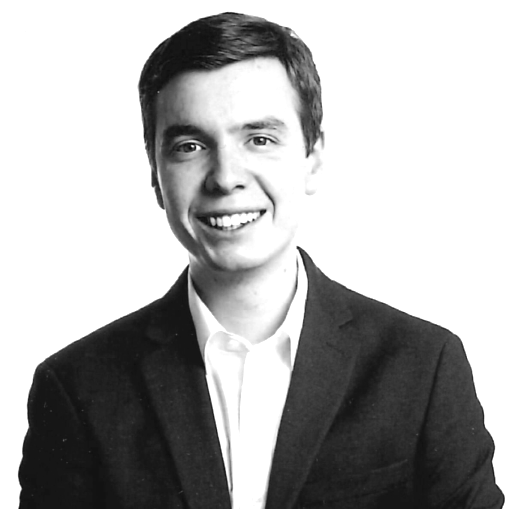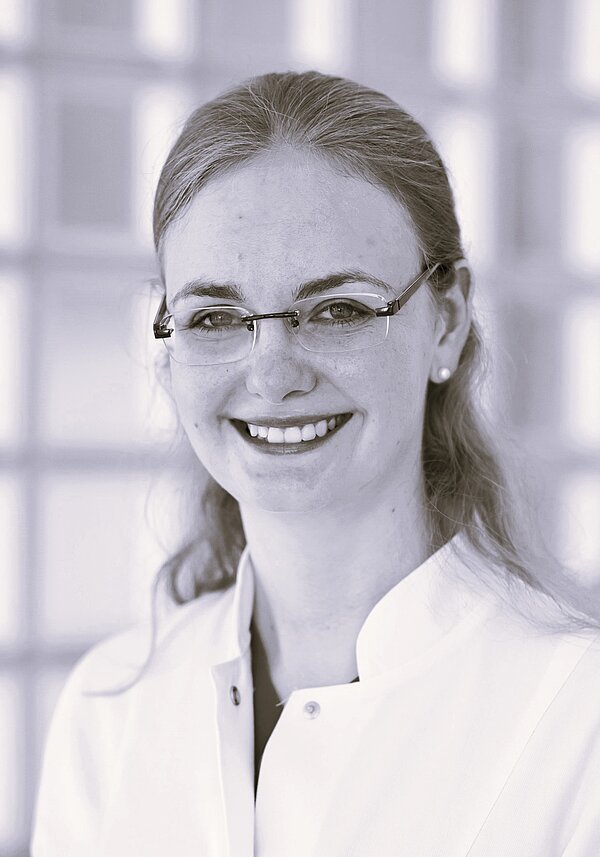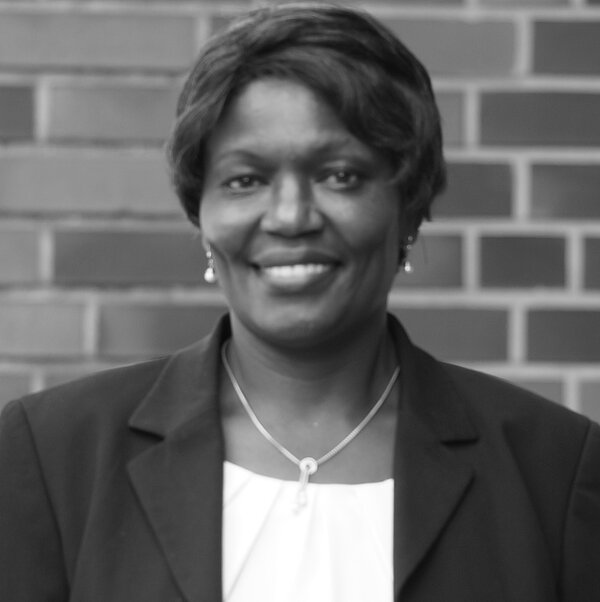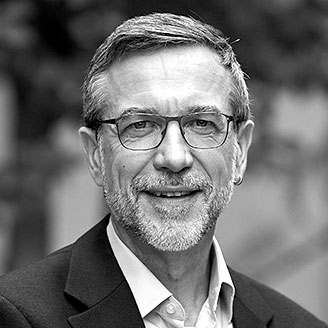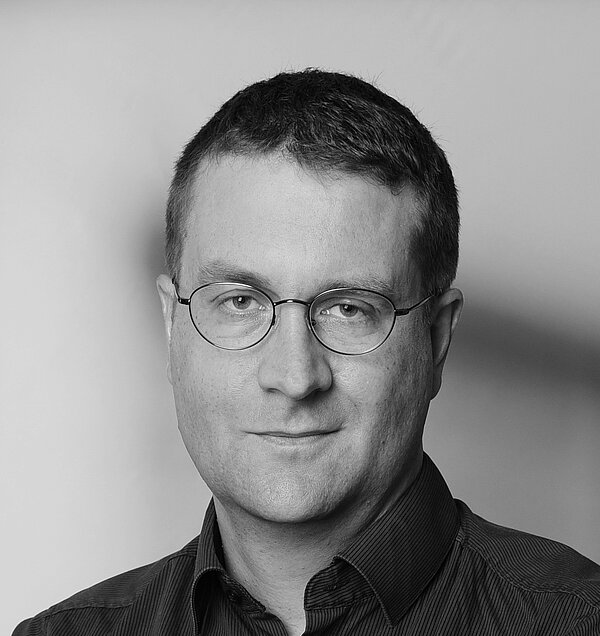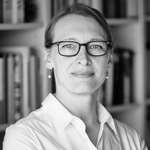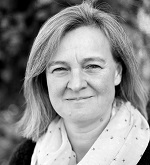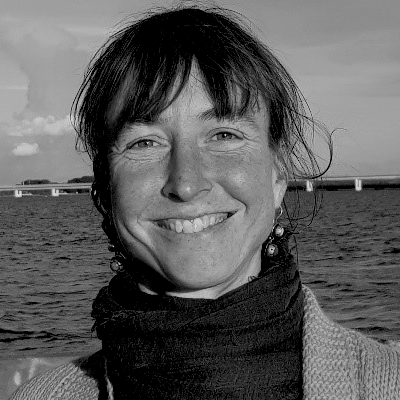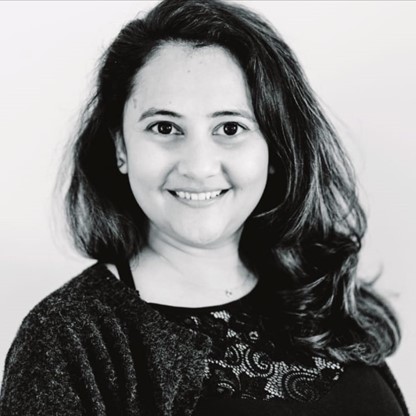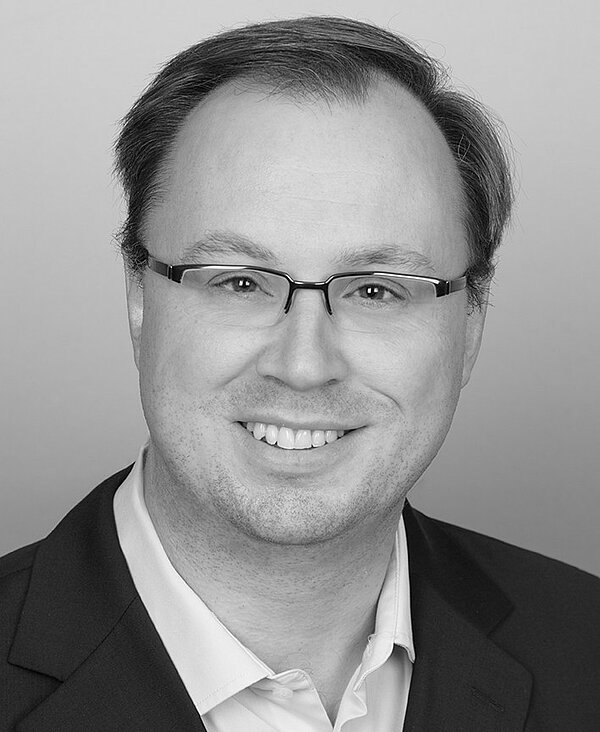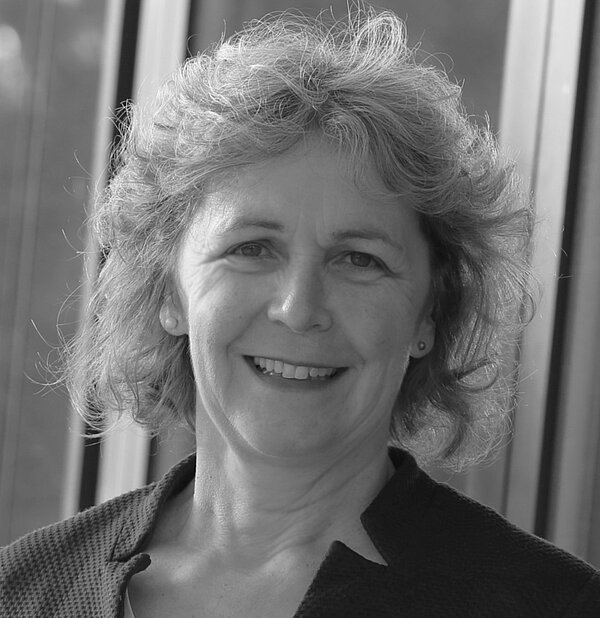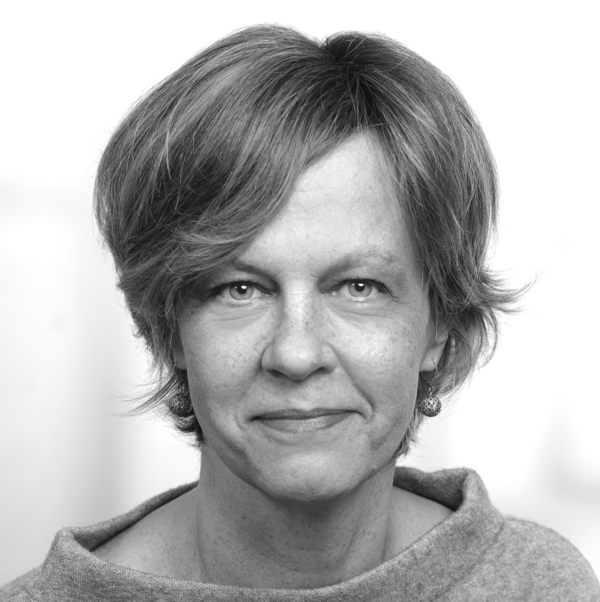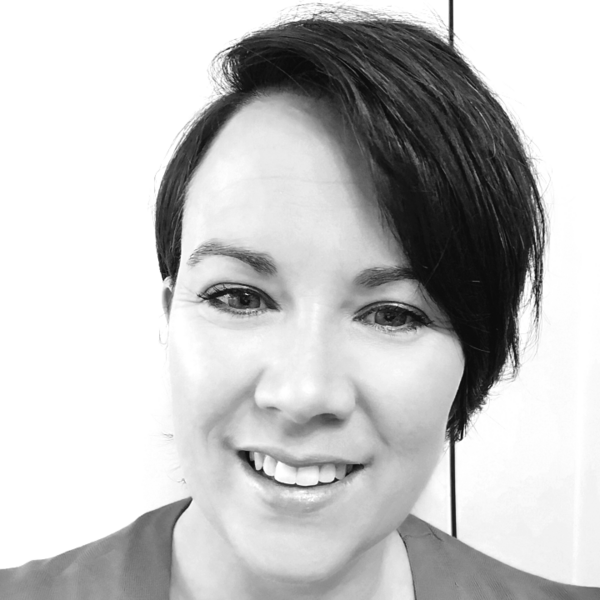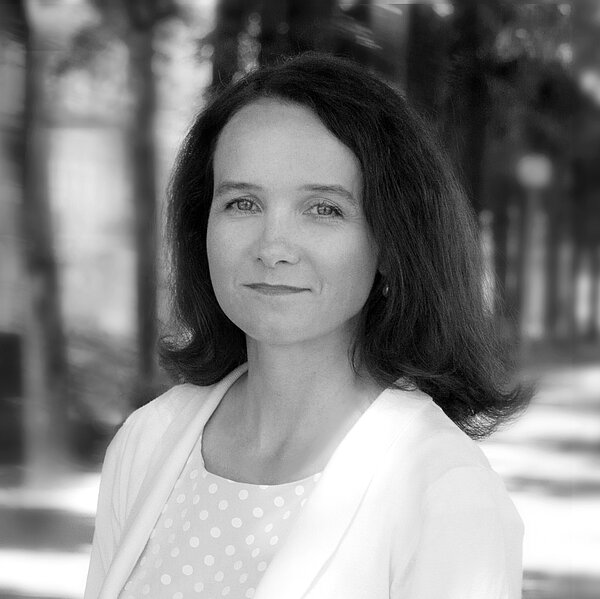Jana Lasser
I am professor for Data Analysis and head of the research group for Complex Social & Computational Systems at the IDea_Lab at the University of Graz. In my research I deal with emergent phenomena in complex social systems. The functioning of the academic system and its weaknesses have been on my mind for some time. Besides my commitment to Open Science, I am particularly concerned with the impact of working conditions in academia on mental health. During my time as spokesperson for the Max Planck PhDnet, I came into contact with the issue of abuse of power in science, which underlies many of the problems of the current academic system. That is why I am involved in the Network against Abuse of Power.
Personal website of Jana Lasser
Sophia Hohmann
I am a project officer for research assessment at Bielefeld University. During my studies of philosophy, German language and education, I focused on different forms of discrimination in academic philosophy and philosophy teaching. This perspective and various university activities have made me aware of various forms of abuse of power in academia. I believe it is crucial to highlight the abuse of power as a phenomenon that transcends status groups, in order to strengthen solidarity, raise awareness of countermeasures, and promote a more inclusive and power-critical academic culture together.
Nicole Merkle
I am currently in the pre-founding phase of a start-up developing an AI-based app for women’s health. I draw on my scientific expertise in machine learning, semantic knowledge representation, and agent-based systems to develop evidence-based solutions for women’s health. I completed my PhD in computer science at the Karlsruhe Institute of Technology (KIT). Personal experiences led me to address abuse of power in academia. This revealed that internal support structures are often subject to institutional constraints and that independent oversight mechanisms are lacking. Openness and transparency are therefore central to my work.
Tanja Hagedorn
With a PhD in German studies, I have been working in research management at German universities since 2008 in positions ranging from doctoral support to management. I am currently working at the University of Hamburg. In my line of work, I had to observe abuse of power in many constellations. As a member of the MaWi network, I would like to work with victims of abuse of power in science to find individual ways out of their situation.
Tanja Hagedorn on LinkedIn
Kerstin Lenk
I studied computer science with a focus on medicine. Currently, I am an assistant professor of computational neuroscience at TU Graz. In my research, I focus on biophysical dynamics in different brain cells like astrocytes and neurons. Over the years, I have seen many forms of abuse of power in science. Already during my time as spokesperson of the advisory board for young scientists in the Gesellschaft für Informatik e.V. (German Informatics Society), we repeatedly drew attention to various issues for young researchers in academia. In our network, I would like to directly support and strengthen those affected.
Elisabeth Flucher
Currently I am working as an assistant professor in the field of modern German literature at the University of Greifswald. During my career I have worked at different Universities in Germany. The topic of power abuse has struck me as most relevant in all of the academic contexts I have got to know so far. With my engagement in the network MaWi I would like to actively work towards a more transparent and fair working environment in academia, as well as to offer support for those affected by power abuse. I think that making power abuse visible and talking about it is one fundamental step toward change.
Pavlos Leußler
I am a research assistant at the Faculty of Catholic Theology at the University of Bonn and a candidate for the priesthood of the Diocese of Essen. I studied Catholic theology and political science, therefore, my research focuses on the intersection of these two subjects. Currently, I am working on the field of religious truths in politics and of power in the church. The latter is also the subject of my dissertation and the way I came to MaWi, as patterns of abuse of power in church and academia are often similar.
Ann-Kristin Helmers
Aktuell arbeite ich als W1 Professorin für funktionelle Neurochirurgie und Stereotaxie an der CAU Kiel. Gleichzeitig bin ich als Oberärztin in der Klinik für Neurochirurgie des UKSH tätig. In meinen verschiedenen Aufgaben sowohl in Fachgesellschaften als auch als stellvertretende Gleichstellungsbeauftragte der medizinischen Fakultät spielt Machtmissbrauch und deren Auswirkungen eine große Rolle und ich halte die Medizin hier für sehr anfällig. Gleichzeitig sehe ich aber an vielen Standorten zu wenig Beratungsangebote und insgesamt kaum Sichtbarkeit. So wird Machtmissbrauch in der Klinik durchaus gerne als normal hingestellt („In der Chirurgie brauchen Sie halt ein dickes Fell….“). Als Mitglied des MaWi-Netzwerkes möchte ich hier zum einen aufklären und zum anderen eine unabhängige Beratung anbieten.
Jan Zöllick
I am a psychologist by training and I work as postdoctoral researcher at the Institute of Medical Sociology and Rehabilitation Science at Charité – Universitätsmedizin Berlin. In my research, I focus on the impacts of digitalisation on healthcare, i.e. I evaluate new apps, sensors, telemedicine applications, etc., in terms of their effects on the health of patients and users. Furthermore, I lead the research project “Studimeter” on mental health and stress in academic studies and I am a member of the Charité doctoral committee. Unfortunately, I frequently encounter the issue of power abuse and its effects on those affected, which is why I am involved as an advisory member to support them. Besides these specific support options for those affected, I advocate for a scientific culture that critically examines its hierarchies and structures, thereby reducing the likelihood of power abuse.
Jan-Christoph Heilinger
I hold the Chair of Practical Philosophy at the University of Witten, researching, among others things, theories of responsibility and structural injustice. During my own academic career, I have seen a lot: exemplary academic practice, collegial cooperation and committed support of young academics – but also blatant misconduct, favoured by academic structures. Above a certain career level, the concentration of power is so great (and control and accountability so small) that the responsible use of power requires awareness for the possibility of abusing it, as well as a functioning moral compass. In the network, I would like to support those affected by abuse of power, raise awareness, and encourage preventative measures and structural reforms.
Personal website of Jan-Christoph Heilinger
Vanessa Franke
I work as a Senior Digital Health Researcher at HelloBetter where I conduct clinical studies to scientifically evaluate digital health applications (DiGA). Previously, I started a PhD programme but dropped out early. As a first-generation academic and a woman in research, I have experienced how subtle and multi-layered abuse of power can be – especially in personal communication, where it is often difficult to name and understand. As a psychologist, I have been deeply shocked to observe and experience how the values and professional ethics of psychology, as well as the scientific knowledge gained to protect and promote mental health, are disregarded and abused within the scientific community. As a member of the network, I would like to support those affected and work to prevent the abuse of power by advocating a self-critical scientific system and helping to raise awareness of power and power structures.
Vanessa Franke on LinkedIn
Susanne Täuber
I have a PhD in social psychology. I have been working at the University of Groningen in the Netherlands since 2009. I do research on bullying, discrimination and abuse of power in science, with a focus on intersectionality. From my own experience and studies on the topic, I know that abuse of power in science is systemic, reproduces social inequality and enables corruption. At the same time, the taboo and denial of power abuse in science makes it difficult for those affected to disclose and report their situation. As a member of the network, I would like to support those affected, leaders at universities and politicians by providing information and advice. In the international context, I perform these tasks as a member of the Dutch Advisory Committee for Diverse and Inclusive Higher Education and Research and as an advisor in the Academic Parity Movement, among others.
Annah Keige-Huge
I have a PhD in chemistry and work as a postdoc coodinator. In addition to coordination and conceptual development of the postdocs program, I offer consulting and workshops on career perspectives, leadership skills, good scientific practice, diversity and critique of power.
Through my research, own experiences, and consulting work, I encounter various forms of abuse of power in science. I have come to realize that BIPOC in particular face and are particularly affected by social and systemic abuse of power, its denial and invisibilization, tabooing and academization. As a certified systemic coach and member of the network, I would like to support scientists of all backgrounds and career stages in recognizing and addressing abuse of power and empower them to take action to counteract it.
Sagi Schaefer
Since January 2025, I manage the antidiscrimination office at the TU Berlin. Before that I was a lecturer at Tel Aviv University and since 2022 I live in Berlin. The abuse and oppression of disadvantaged groups concerns me in many aspects of life, but ever since I accepted a tenure track position, I engage in fighting against such abuses in academic life in particular. I have done so as part of several organizations and through my position in the university. In recent years, I have been especially involved in the struggle against sexualized violence in academia. I have joined MaWi with the hope to pursue the same goals in Germany as well.
Laura Maria Lewald-Romahn
I have a doctorate in German Didactics and I am a qualified teacher (Sekundarstufe I/II in Germany). As a lecturer I educate German teachers at the Carl von Ossietzky University of Oldenburg. As a first-gen postdoc, I have always been active as a volunteer. Due to personal experiences, I had to deal with the issue of abuse of power in science and came out of it stronger. It is no longer a taboo subject, but an unfair, systematic selection tool. I want to empower those affected and advocate for an appreciative scientific culture. My research topics: literature and media didactics, disability studies, game studies, literary-aesthetic learning.
Laura Maria Lewald-Romahn on LinkedIn
Heinz G. Fehrenbach
I was the first member of my family to enter academic terrain in 1976. I was a student and doctoral student in biology and worked for 10 years as a postdoc in third-party funded projects in human medicine before I qualified as a professor in human anatomy. After a temporary C3 professorship in Marburg (2002-2008), I worked as a W3 professor at the University of Lübeck at the Borstel Research Centre until my retirement in 2023. I had learnt to navigate unfamiliar terrain. Nevertheless, Academia remained a foreign place to me. What I had come to recognise at all status levels and accept as ‘normal’ behaviour in an academic environment often displayed signs of abuse of power. Unfortunately, I didn't realise this until the end of my career. I am grateful that I was able to contribute to the founding of MaWi. At the end of 2024, I will be leaving the active MaWi work to my fellow combatants. May Academia change for the better through your work and commitment!
Daniel Leising
I am a professor for diagnostics and intervention at the TU Dresden. In the past, I was repeatedly confronted with quite drastic examples of how colleagues handled the power given to them in a highly problematic way. This almost always remains without serious consequences, because the hierarchical dependencies in the scientific system create a climate of fear, and as a consequence: silence. The MaWi network offers those affected independent advice and, if necessary, support. We also strive for a clear communication about the topic with the public and strive in the long run for a change of the structures in the science system - because it can't stay the way it is.
Sandra Beaufaÿs
I am a social scientist and work as a research associate in the coordination and research office of the “Women's and Gender Research Network NRW” at the University of Duisburg-Essen. My focus is gender-related higher education research. Through my research work, I have become aware that science is a field of power and that women are particularly affected by this. I would like to support female and male scientists in de-tabooing the topic and becoming capable of taking action.
Claudia Staab-Weijnitz
I am a scientist in lung research and spokesperson of a graduate program. As a person of trust in my many years of work with doctoral students, I am repeatedly confronted with abuse of power on the part of the supervisors. However, due to the well-known dependence-relationships, the doctoral students hardly ever dare to initiate measures beyond the conversation with me. I would like to support the MaWi network in making the topic more visible and sensitizing others to it.
Stefanie Heidmann
I worked as an assistant in research groups for a total of 16 years. Through experiences shared by doctoral students, I gained an insight into how their dependency on the doctoral supervisor may invite the abuse of power and how difficult it can be for those affected to escape from such conditions. Accepting this as a structural fact does not help the individual. That's why I think awareness raising and support services of the Network Against Abuse of Power in Science are so important and necessary, and I would like to help drawing attention to it
Krutika Gohil
After the Ph.D. in psychology, I worked as a PostDoc in the developmental neuroscience field at TU Dresden. Since 2018, I have been pursuing my industrial career in digital health innovation to develop accessible and engaging applications where I can integrate creativity and problem solving while keeping my scientific flare intact. The transition to the industry was mainly caused by an environment penetrated with toxic hierarchies and hyper-competitiveness, amplified by an over-dependence on temporary contracts and power abuse. Therefore, I would like to support my fellow scientists with a helping hand and an open ear, so they are empowered with the knowledge of one’s rights and possibilities.
Christian Hopp
I was appointed Professor of Applied Data Science and Finance at Bern University of Applied Sciences in 2020. My research is on the topics of entrepreneurial finance, innovation, leadership and scientific misconduct (plagiarism, questionable research practice, replicability). Ever since my time as a mid-level representative at the University of Vienna, but also during my time as a W-2 professor at RWTH Aachen University, I have experienced many academic behaviors that I retrospectively would consider as abuse of power, but which were largely tolerated. As a member of the network, I would therefore like to contribute to highlighting these types of misconduct in the academic system, pointing out the consequences of abuse of power and offering counselling for those affected.
Veronika Fuest
After decades of extensive experience in research and science management at various locations - most recently as head of the Ombudsman's Office for Good Scientific Practice at the University of Göttingen - I would like to support this important network. I have always been concerned with questions about how abuse of power occurs and how to deal with it. Particularly in the academic field, I am trying to promote conscious uses of power and a sensitivity to micropolitical action. I have a doctorate in anthropology and am self-employed as a trainer and certified consultant (systemic transactional analysis).
Henriette Senst
I studied library and information science and work as a consultant at the Federal Ministry of Health. Before that, I worked in research institutions specialising in life sciences and cultural studies. My work and research focus is in the field of information infrastructure, especially in research data management. The increasing complexity of digital infrastructures presents researchers with new challenges in the comprehensive documentation and long-term storage of their research results. I would like to support scientists in recognising and consciously shaping their rights and obligations in the associated processes, as this documentation plays an important role in the context of good scientific practice.
Manuela Tischler
In my research (regarding the role of trust in academic careers) as well as my work as a coach for scientists I encountered various types of abuse of power. This was deeply concerning to me as ways of disciplining these abuses of power were lacking and the psychological barriers to ask for help are high. I would like to counter this problem by creating more awareness and offering a safe space for scientists who have experienced power abuse to talk about their experiences and develop effective coping strategies.
Being at heart an optimist, I believe in the amelioration of scientific institutions and would like to help develop better regulation mechanisms that effectively address power abuse.
Manuela Tischler on LinkedIn
Mareen Czekalla
As a doctor of geosciences and business psychologist, I have worked in very different scientific institutions and fields. Currently, I am working as an advisor at the Technical University in Dresden. During my professional years, I repeatedly came into contact with the issue of abuse of power and its effect on the mental health of the persons affected. This gave me the motivation to study destructive and constructive forms of power. Furthermore, I have delved into other topics, such as bullying and discrimination. In addition to my professional expertise, I also have experience in systemic coaching. As a member of the MaWi network, I would like to offer independent advice to persons affected. At the same time, it is my intention to help the topic gain more visibility.
Leila Dedial
Currently, I am working as a project coordinator for the Hilde Domin Training Programme, at the University of Konstanz. Abuse of power in science appears in short encounters and decisions concerning the study/career trajectory and therefore an individual's psychological condition. With this everydayness comes a habit, to practice and accept behaviour like this. To achieve change, we must name this taboo. To me, it is important to provide a space for people affected by the abuse of power and to provide clarification, both, to people causing and supporting the system behind the abuse of power and those affected by it. I want to strengthen student concerns as a highly relevant part of the system.
Daniel Müller
From 2009-15, I was head of the TU Dortmund University's graduate program for supporting doctoral students, and from 2012 I was also a member of the Scientific Staff Council. I have headed the newly established graduate center "House of Young Talents" at the University of Siegen, which supports doctoral students, postdocs, and junior professors at the University of Siegen. Since 2019, I have also been one of the three elected spokespersons of the "Arbeitsgemeinschaft der Mitglieder des Wissenschaftlichen Mittelbaus". In these roles, I have repeatedly been confronted with power imbalances and abuses and address them in my events as well. I would like to support scientists of all career levels who are affected by power abuse.
Christina Hölzel
I'm a specialist in veterinary microbiology and a full professor at Kiel University. As a faculty deputy for diversity, I´m aware of power abuse in science. Being engaged in the sustainable science network (NNW), I´m interested in how to change structures, so that university structures impede power abuse, instead of rewarding it in a way. Personally, I was lucky to work at places where directors acted with high integrity. I oppose this experience to the widespread assumption that science is only successful under pressure. What concerns me even more than the "blatant cases" covered by the press is the general lack of reflexion considering (professorial) power in everyday life and the condoning of the advantages that are shaped by this situation.
Christina Hölzel on Bluesky
Your statement on the abuse of power in science could appear here!
Get in touch with us and join us as a supporting member.
Roles in the association
Board: Sophia Hohmann (chair), Jana Lasser (vice chair), Heinz G. Fehrenbach (treasurer)
Auditors: Tanja Hagedorn, Kerstin Lenk
See also the statutes of the Netzwerk gegen Machtmissbrauch in der Wissenschaft e.V. (German)
Previous Boards:
10/2022-11/2023: Heinz G. Fehrenbach (chair), Sophia Hohmann (vice chair), Jana Lasser (teasurer)
Auditors: Daniel Müller, Kerstin Lenk

